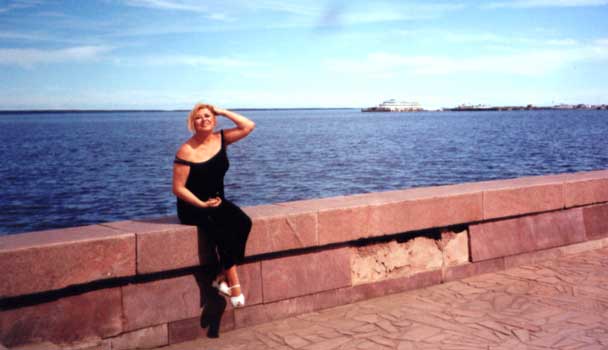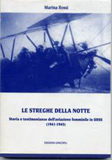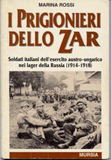Marina Rossi

(Summer 2001: on the White Sea, facing the Solovetsky Islands)
Marina Rossi is a researcher at the Istituto Regionale per la Storia del Movimento di Liberazione of Trieste, Italy. She also cooperates with the universities of Trieste and Venice, where she has formerly been a professor of History of the Slavic Countries. She is the author of several articles and essays concerning the History of Labour and of the Organized Labour Movement in the south provinces of the Habsburg Empire, as well as the political strife in Northeast Italy from the aftermath of WWI to the end of WWII. She is especially known for her studies on the Eastern Front and on confinement of prisoners in Russia during World Wars. Her most important studies in this field are: I prigionieri dello zar (Mursia, Milano 1997), Irredenti giuliani al fronte russo (Udine, 1999), Le Streghe della notte. Storia e testimonianze dell'aviazione femminile in URSS (1941-1945)(ed. by Unicopli, Milan, 2003), Evghenij Chaldej, un grande fotografo di guerra (ed. by La Stampa, Turin, 2006). Starting from 1994, she has cooperated as an expert in history to all the documentary films shot by Umberto Asti about Russian history: L'altra riva del Don (1995), L'uomo del Volga (2000), La Vittoria non ha le ali (2002). She also was a Co-Screenwriter for I naviganti (2006) and Chapiteau (2007) by the same filmmaker.
She was also in charge of motion picture research and papers concerning the Eastern Front and the Italian Northeast borders for the documentaries: I prigionieri di guerra by J. Gianichian and A. Ricci (Museo Rovereto, 1995); Cronache militari dei fronti galiziano e balcanico (Museo Rovereto, 1996); Passano i soldati by L. Gasperini (Roma, 2001); Trieste sotto (Rai international, Rome 2002).

LE STREGHE DELLA NOTTE
In the summer of 1942, the Nazi-fascists and their allied relentlessly dropping bombs on the river Don plain were not aware that retaliation came from famous USSR air heroines, female students and workers. In a few weeks, the volunteers of the female 588th Light Night Bomber Regiment would be given the nickname “Night Witches” in the leaflets dropped by the Lutwaffe pilots. In the hope for a better future, these women had volunteered to defend their Motherland, challenging male military hierarchies. The author uncovers this part of history, relying on direct evidence by the protagonists and on previously unrevealed documents.
.

IRREDENTI GIULIANI AL FRONTE RUSSO
Austro-Hungarian veterans who had fought in the Italian army were never awarded any honour for merits. Moreover, they were placed under political pressure to take side for Italy and they were treated with distrust by the Italian military authorities, due both to their ethnic origins and their political convictions, which did not always fulfilled the interests of the Kingdom of Italy. The attitude and the disciplinary measures adopted by both the military Governorate and the Civil Commission for the Giulian region caused an abandonment of the struggle for an ideal motherland even in fervent irredentists who claimed to be followers of Mazzini

I PRIGIONIERI DELLO ZAR
During WWI, many Italian, Slovenian and Croatian soldiers fighting in the Austro-Hungarian army on the Eastern Front were imprisoned in Russia. They have similar stories to other soldiers of many nationalities belonging to the Empire. These stories have been neglected by all the countries involved in the War. Evidence of the prison life lead by these defeated soldiers is provided by their letters, their diaries and by archival documents. Similarities with the experience lived in the Soviet Union by the CSIR and the ARMIR Italian expeditionary corps are shown by Czarist elements persisting in the Soviet state, concerning censorship, the secret services, the location of confinement camps and the socio-economic backwardness of the country.
